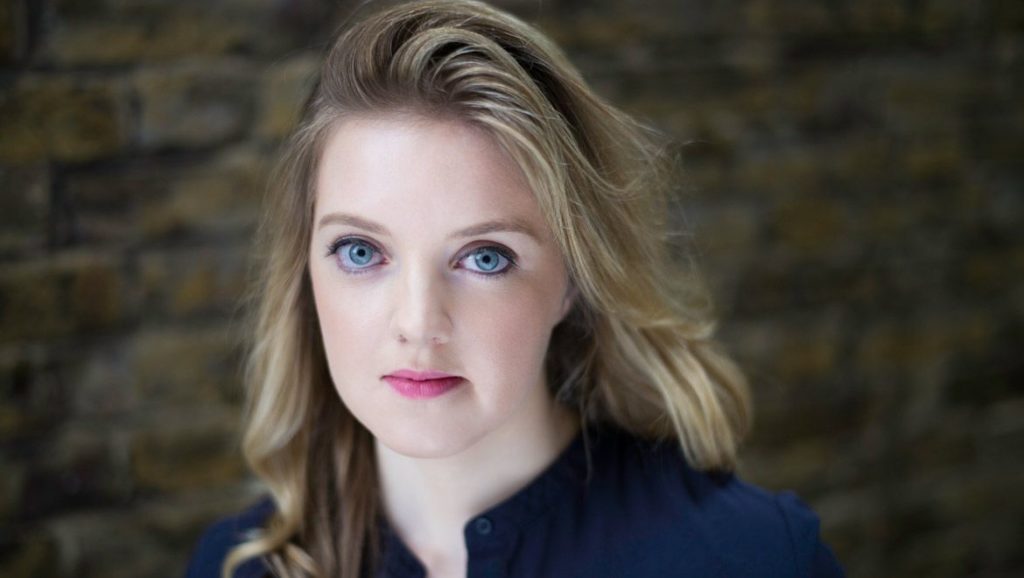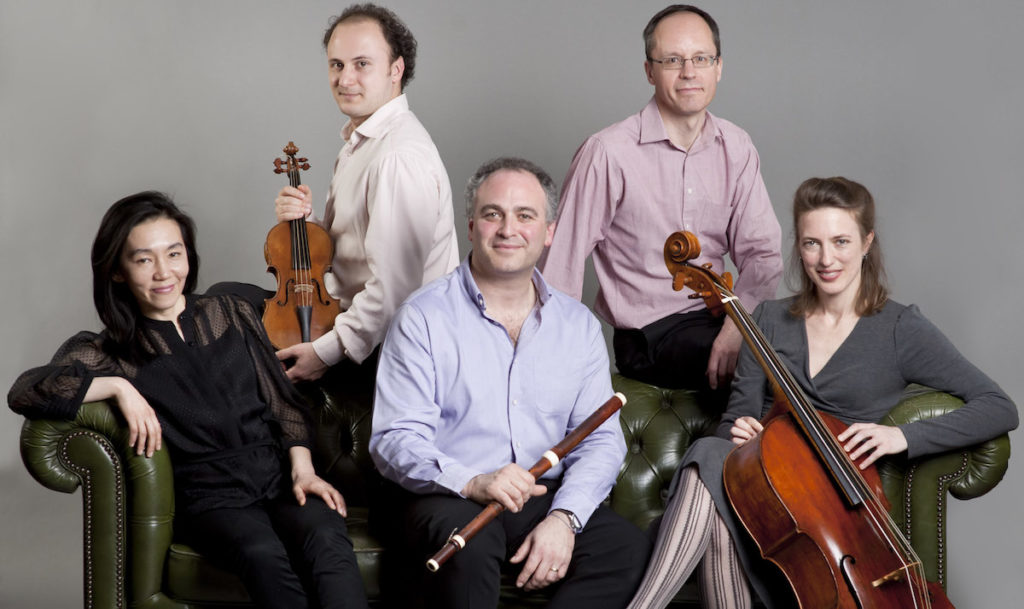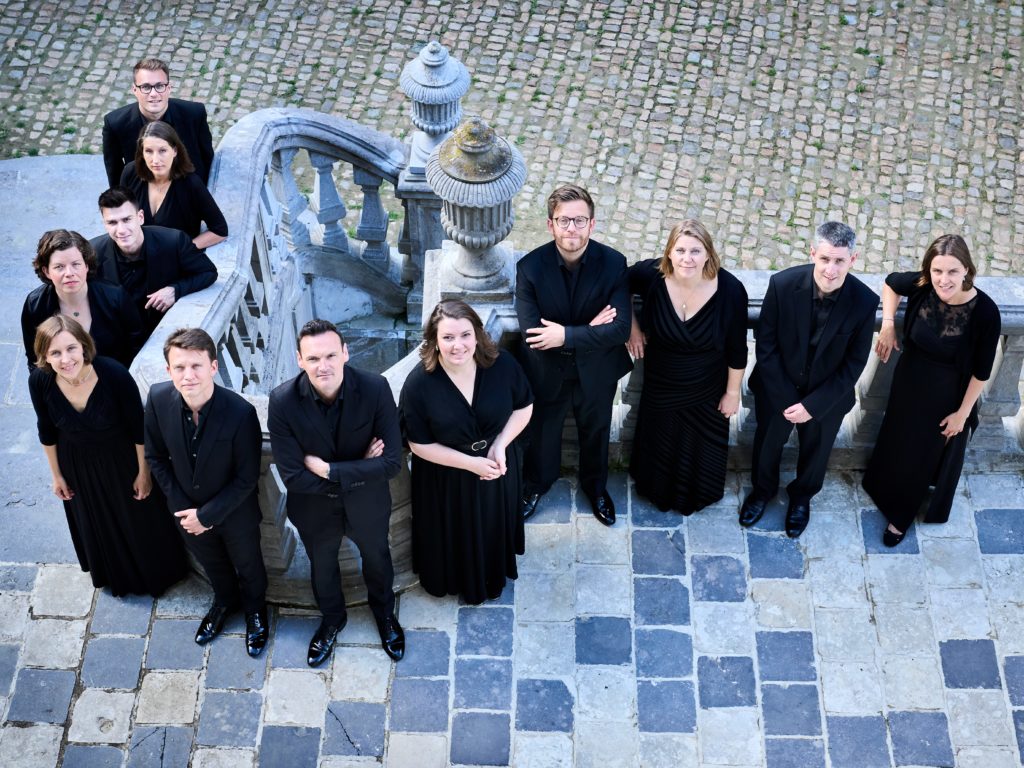
North Riding soprano Rowan Pierce
THE appearance in Beverley of a North Riding soprano who has made it in the international arena was enough to attract any Yorkshireman. For anyone who had actually heard Rowan Pierce before, it was an unmissable event.
With the superb backing of the ten members of Florilegium, she delivered a Handel aria and one of Bach’s most challenging secular cantatas. Orchestral works by the same composers combined to make this a succulent opening night of the festival.
The demanding coloratura of ‘Sweet Bird’, from Part I of Handel’s Milton-inspired oratorio L’Allegro (1740), sounded as if written with Pierce in mind, so flexible was her tone. Her duetting alone with Ashley Solomon’s equally agile flute was delightfully evocative of the poet’s “most melancholy enchantress of the woods” (a bird otherwise unidentified).

She returned later with Bach’s Cantata No 204, Ich Bin In Mir Vergnügt (‘I am content in myself’), which decries the vanity of riches. Its prodigious length, four arias in succession with preceding recitatives, is a test of any singer’s stamina. But Pierce was undeterred, showing particular involvement with the text.
The recitatives were unusually dramatic. But the restfulness of the opening aria, with two oboes in close attendance, and the crisp interweaving of voice and flute in the penultimate one, were more typical of the contentment she conjured.
The evening opened with Bach’s First Orchestral Suite. With its two chirpy gavottes and acharming woodwind trio in its bourrées, it crystallised the spirit of the dance. Handel’s Concerto Grosso, Op 3 No 3 in G, showed why Florilegium has been at the forefront of our Baroque orchestras virtually since its formation all but 25 years ago, especially in its lively fugal Allegro at the close. Voices ebbed and flowed with stylish precision.
But the evening belonged to Pierce. She capped it with Arne’s setting of Where The Bee Sucks, with flute and strings, which made a perfect encore.
Beverley & East Riding Early Music Festival, Stile Antico, Beverley Minster, May 24

Stile Antico: “Undoubtedly Beverley Minster suited the singers down to the ground: they were on top form.” Picture: Kaupo Kikka Hogg
THE 12 voices of Stile Antico celebrated the quincentenary of Palestrina’s birth with a programme centred on “The Prince of Music” in what is arguably the best cathedral-style acoustic anywhere in the north of England. Undoubtedly Beverley Minster suited the singers down to the ground: they were on top form.
The choir’s very name evokes the ‘old style’ attributed by later centuries to Palestrina, so he is in effect its patron composer. His achievements are still regarded as the epitome of classical Renaissance polyphony, especially in its controlled use of dissonance. If that sounds dry and academic, the effect here was quite the contrary: the music positively gleamed.
It was a smart move to give this music some context by including earlier samples from Des Prez and Arcadelt. The former’s antiphon for compline, Salve Regina, with its high soprano entries, was neatly contrasted by the latter’s Pater noster, darker coloured and beautifully worked here. Further contrast came with Palestrina’s six-voiced Tu es Petrus, whose vigorous inner parts emerged with notable clarity.
The best-known of Palestrina’s 104 masses, Missa Papae Marcelli, was represented by its Credo, whose mood changes are remarkable. The shift from the reverential Crucifixus to the optimism of the Ascension was enhanced by a gradual progression to an Amen of extreme celebration.
Another clever juxtaposition – revealing something of the composer’s own personality – was the downbeat humility of Peccantem Me Quotidie, written in the wake of serious family loss, immediately countered by a secular madrigal reflecting his unbridled happiness on remarriage. A sacred madrigal, in the vernacular not Latin, might have completed the picture.
There were several tributes to the composer’s legacy. The Spanish-tinged harmony of Lassus’s Musica Dei Donum was almost an early ‘An die Musik’, and there was some expert shading in Allegri’s Easter motet Christus Resurgens.
Lovely modern homage came from Cheryl Frances-Hoad’s A Gift Of Heaven, which dressed Palestrina’s style in modern clothing, even imitating him at the quotation of Latin text half-way through. Its significant tenor solo was handled with admirable aplomb by Jonathan Hanley.
Finally, the luxuriant 12-voice Laudate Dominum in tympanis revealed Palestrina at his most supremely confident; like the whole evening, it was impeccably tuned.
By way of encore there was a nod to the 400th anniversary of Gibbons’s death, with The silver Swan. Suffice to say, it brought tears to the eyes.
Reviews by Martin Dreyer
